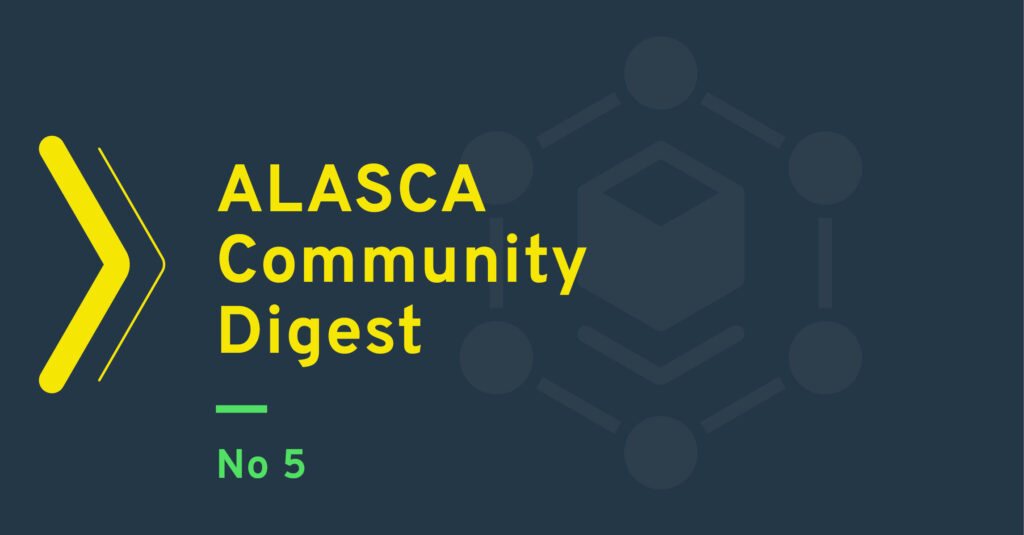Dear ALASCA community,
We hope you're having a great summer! It's been very rainy here in Dresden over the last weeks - which is perfect for a cosy afternoon of reading. In keeping with this, we have prepared a review of Q2 for you. In this issue you will find exciting information on the following topics:
1) Update on the ALASCA Summit 2025
2) A review of the first ALASCA Hackathon
3) Update on our funding project FOCIS
4) News from ALASCA's Technical Steering Committee
5) Insights into the development of our four (yes, now four!) open source projects Yaook, Tarook, Krake and Yake
6) News about the ALASCA Tech Talks
7) More exciting news
Before we go into the digest, we would like to welcome our two new members:
We are delighted to have you on board.
And now: Have fun browsing! ☕
Cheers,
your ALASCA team
1) ALASCA Summit 2025: Programme published - Registration now open!

First of all, we would like to thank you all for submitting truly great proposals for talks and workshops over the last few weeks - thanks to you, we have been able to put together a fantastic programme that our community will surely enjoy.
and join us here and would like to be there when we meet at the 3 and 4 November 2025 when we will meet again at the Deutsches-Hygiene-Museum in Dresden for the 2nd ALASCA Summit.
We would also like to take this opportunity to thank our sponsors - we are overwhelmed by their willingness to make this event possible for the second time. A huge thank you to UhuruTec, Yorizon and secunet for their support as Gold Sponsors, STORDIS, x-cellent technologies, dNation, B1 Systems, OSISM and Cloud&Heat Technologies for their Silver Sponsorship and cyberus technology for their support as Bronze Sponsor.
Our team will continue putting their efforts into preparations in order to offer you a great event - but in the end, thanks to your enthusiasm and enjoyment of open source topics, it will be great again anyway.
Take a look at the Schedule and register now! You can find all information on our Website.
And by the way: this year we are also delighted to be able to offer you a Event app including line-up, programme, sponsors and much more (no download required for use).
2) ALASCA's very first hackathon in Stuttgart - looking back at two great days.
At the beginning of June, we had the pleasure of meeting up in Stuttgart for the first official ALASCA Hackathon and using this time to further develop and optimise our open source projects.
This first hackathon was primarily about the improvement of the documentation of our projects as well as the further development of automation processes and the integration of SCS standardsas these are the central aspects of our FOCIS funding project. Let's take a brief look at what we have achieved together:
For Yaook we were able to create an installation script for easy setup with minimal user input and improve the lifcycle support of OpenStack components with the aim of automating the process in the future.
There were also developments within Tarook : The existing installation manual and the creation of the corresponding merge requests enabled the group to fix some inconsistencies they had found along the way. Tarook also received a list of all currently supported Tarook releases, the integration of OpenBao (instead of Vault) and the beginnings of lifecycle management for the creation and monitoring of clusters.
Another exciting development was a collaboration between our members Pacifico and dNation. dNation had a use case for raclette - a framework for platform development that is being developed by Pacifico.
The dNation use case gave raclette its first opportunity for a practical experiment: the aim was to evaluate what a front end for billing could look like for the dCloud (dNation's public cloud), which could be used to view monthly cloud resource usage. In just a few hours, dNation and Pacifico jointly created a proof of concept. The collaboration between the two members will continue beyond the hackathon with the aim of further developing the PoC.
At ALASCA, we value this type of collaboration and knowledge transfer between our members and are delighted to be able to make this space available to you. And the best is: the OpenStack PoC is ready for you - completely open source-based, of course! If you want to use it or find out more, feel free to contact the Pacifico and dNation team. Here you can find the project.
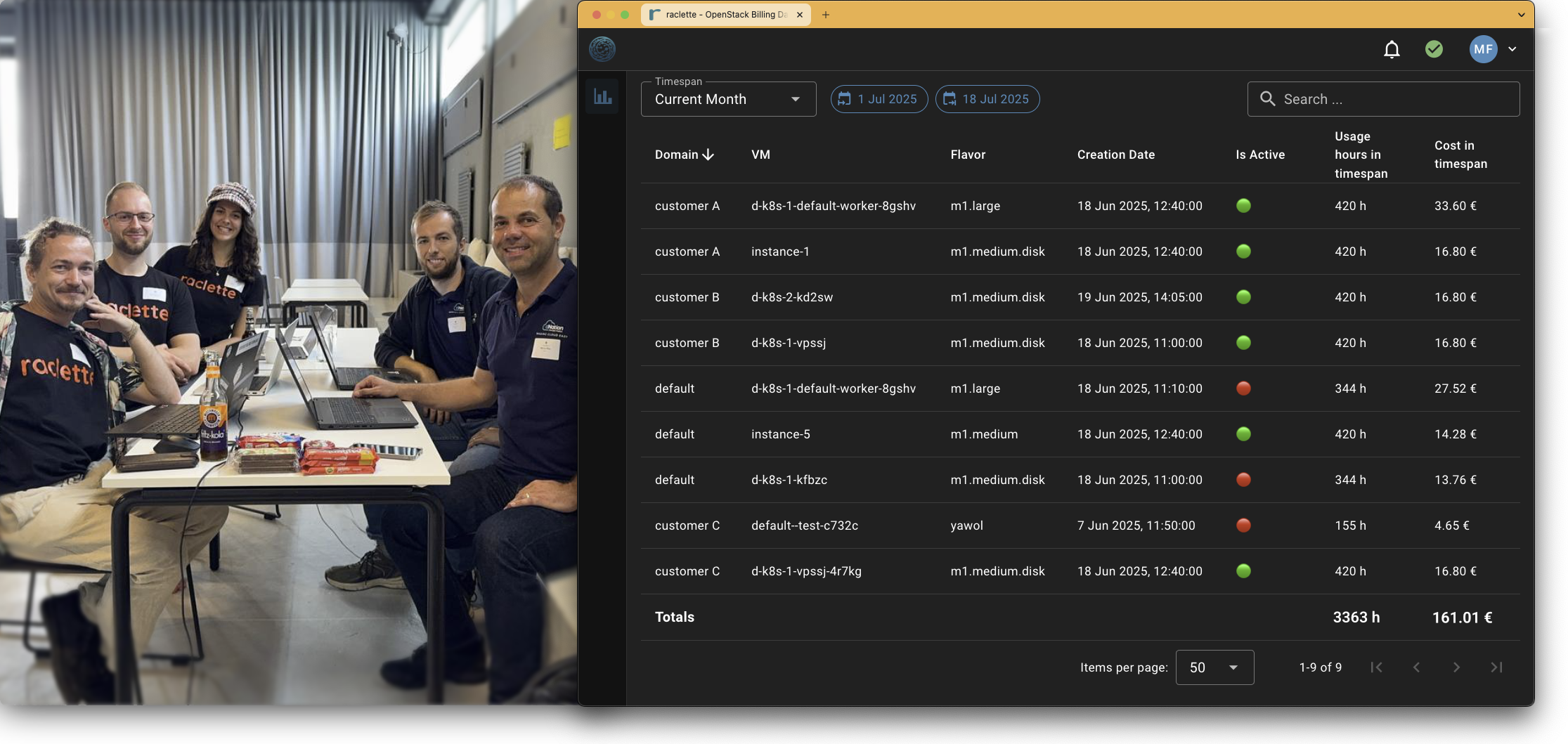
That was the first ALASCA Hackathon - we would like to thank all the participants who made the journey to Stuttgart. A total of 45 highly motivated people took part - a number we are really proud of!
Special thanks go to our member UhuruTec for their support in organising and inviting the ALASCA community to their summer party; and our member B1 Systems for the generous sponsorship of our catering - without you, such an event would not have been possible.
With this in mind, we are already looking forward to the next ALASCA Hackathon with our community!
3) Update on our funding project FOCIS

Our funding project FOCIS is making steady progress too, and there is great news to announce. In the months leading up to June, a major focus was on organising the first ALASCA Hackathon.
The hackathon was a great opportunity to further develop our projects (e.g., in terms of their technical documentation) and to share knowledge with the community, in line with the FOCIS project objectives.
Daniel Gerber has been actively supporting the FOCIS team as a software developer since 1 July. He will make the four ALASCA projects easier to manage on a day-to-day basis, both for users and developers. To this end, he supports the optimisation and maintenance of the documentation and also deals with automation options and continuous testing.
In addition, preparations are underway for an SCS-compliant OpenStack installation using Yaook, which will be carried out by our member Cloud&Heat Technologies in Dresden, connected to the Dresden internet node DD-IX and supported and documented in detail by the FOCIS project. At the end of September, FOCIS will also provide services for the ALASCA community on this installation.
4) Update from our Technical Steering Committee
The Technical Steering Committee has been very active again in recent months and has spared no effort. For example, the potential inclusion of two new projects in our association was discussed and evaluated in detail by the TSC. ALASCA will now proceed with one of these projects and we are at the beginning of the admission process, which will be worked on over the coming months.
Over the past few months, the TSC has been working intensively on developing a questionnaire for the inclusion of new open-source projects in ALASCA.
In addition, the organisation and restructuring of a dedicated ALASCA namespace on GitLab was a key topic. In the course of this, a governance/TSC repository will also be established under this namespace on GitLab with the help of our TSC.
Last but not least, a few members of the TSC were of course also present at our ALASCA Hackathon in Stuttgart in June and worked diligently on our projects.
5) News from our open source projects
The teams behind our open source projects were as always hard at work in the second quarter. We would like to share one particularly major change right at the start: Tarook - the Kubernetes distribution that was previously developed within Yaook - is now officially spun off, making it the fourth, independent project at ALASCA! As the Kubernetes distribution and the Yaook operators are used independently of each other in different contexts, the spin-off was technically and organisationally very complex, but at the same time worthwhile.
Now let's move on to the updates:
Yaook
The following developments took place at Yaook in the past quarter:
Octavia operator has been revised; many required resources (networks, ports, ...) are created automatically
Further improvements and adjustments to the OVN setup
Adapt/straighten some operators so that they are on the same level as other operators, e.g. policies for ironic and placement; database setup for designate
Upgrade Tempest
Reduction of the shutdown time of mariadb pods
Adaptations to ovn-Setup/ovsdbs so that non-Yaook components can use them and custom ovsdbs can be created
Troubleshooting for RabbitMQ/oslo.messaging continues, hopefully completed soon
And: We have also launched the new Yaook website! Have a look at yaook.cloud.
Tarook

Tarook worked intensively in three directions:
1 Further development of Yaook K8s - Release 10
Numerous improvements have been implemented with the current release:
General optimisations and code clean-ups
Improved support for bare metal clusters
Extension to include support for OVN-based OpenStack deployments
Compatibility with Kubernetes v1.32
2 Support for ALASCA
The desire for a separate ALASCA GitLab group had existed for some time - and in view of the spin-off of Tarook and the associated need for a Yaook-independent GitLab project, the following measures have now been implemented:
Restructuring of the GitLab Group organisation into a separate ALASCA namespace: https://gitlab.com/alasca.cloud/
Successful participation in the GitLab for Open Source Programme for ALASCA
Setup of dedicated GitLab Group Runner for connected projects
3 Transition from Yaook K8s to Tarook
The spin-off of Yaook K8s to Tarook entails both technical and organisational changes - among other things:
Customisation of the GitLab structure
Adaptation of documentation and release-dependent components
Setup of dedicated TAROOK GitLab Group Runner
Creation of the website, logo and content transfer regarding Tarook content (in progress)
By the way: The bird in Tarook's (Tailored, Ansible-based, RObust, Open Kubernetes-installations) logo is an albatross. Albatrosses often stay close to ships on their long flights and can even serve as navigation for sailors. As a Kubernetes distribution, this little animal therefore seemed appropriate for Tarook.
Krake
A lot has also happened with Krake. To begin with, we would like to point out that Krake can now be found in the above-mentioned ALASCA namespace on GitLab: https://gitlab.com/alasca.cloud/krake
In addition, the contents of the Krake workshop at the ALASCA Summit have been released - you can find them here:
Other activities relate to the processing and closing of open merge requests:
Krake can now delete resources from applications that are FAILED or DEGTADED using shutdown hooks
Change from octopus cli command "rok" to "krakectl"
Reset of the previous release management (requires an update/change)
Yake
A lot has happened at Yake in the last three months and the following developments can be reported:
Gardener 1.124 is usable (release from week 30)
Gardenlinux 1877.1 is usable (release from week 29)
ACL extension (provided by STACKIT) can be used
YAKE Ansible for building new environments was continued, with a focus on using the Gardener Operator
6) ALASCA Tech-Talks
In the second quarter, we once again heard some great technical presentations on open source and cloud topics and technologies and welcomed Michelle Fuchs (Pacifico Digital Explorations), Matthias Haag (UhuruTec) and Gerhard Bader (Yorizon) as well as Tobias Nöthlich (D3TN):
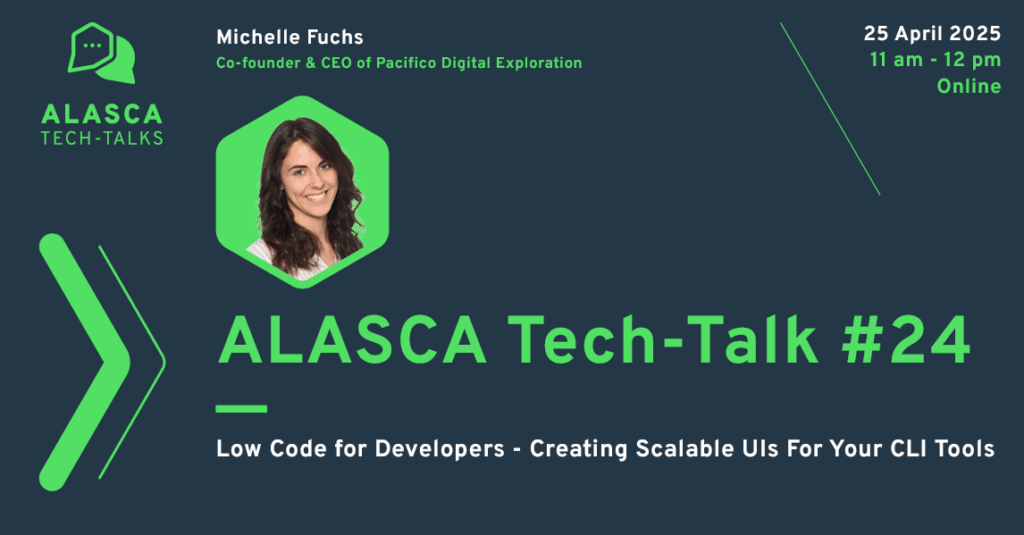
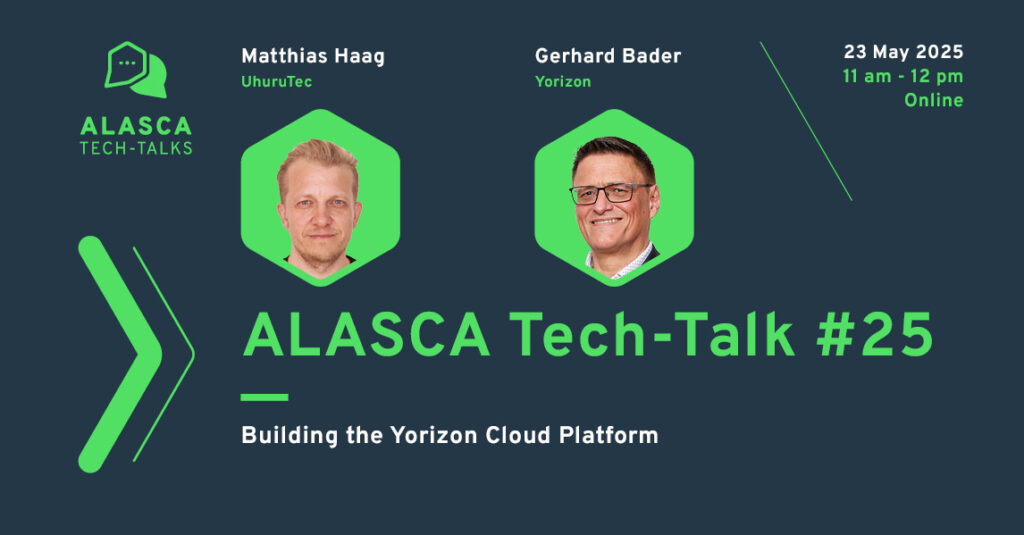
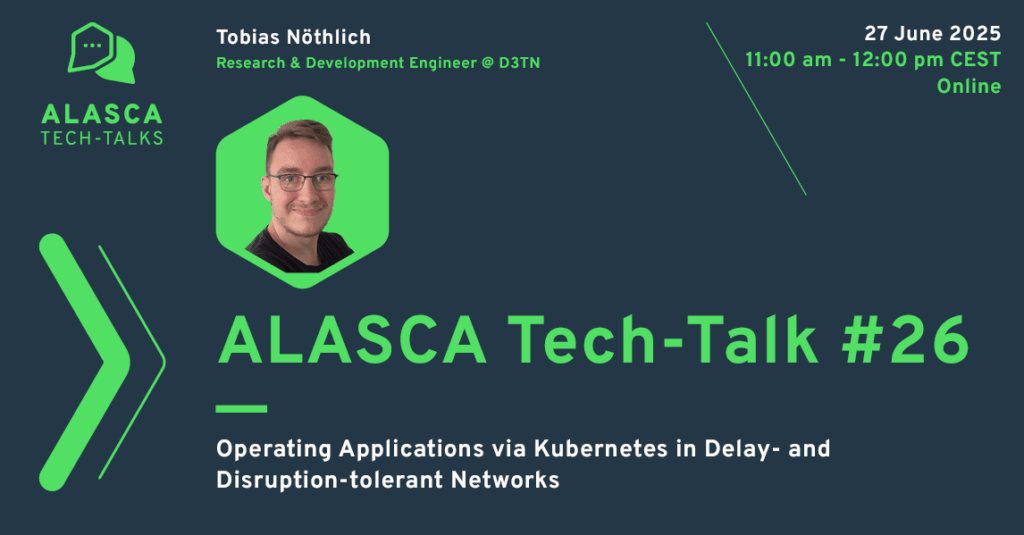
In addition, get ready for our Tech-Talk in August: On 29 August, we welcome Max Harmathy from UhuruTec, who will give us an update on uStack - a GitOps-based lifecycle management tool for OpenStack environments with Yaook.
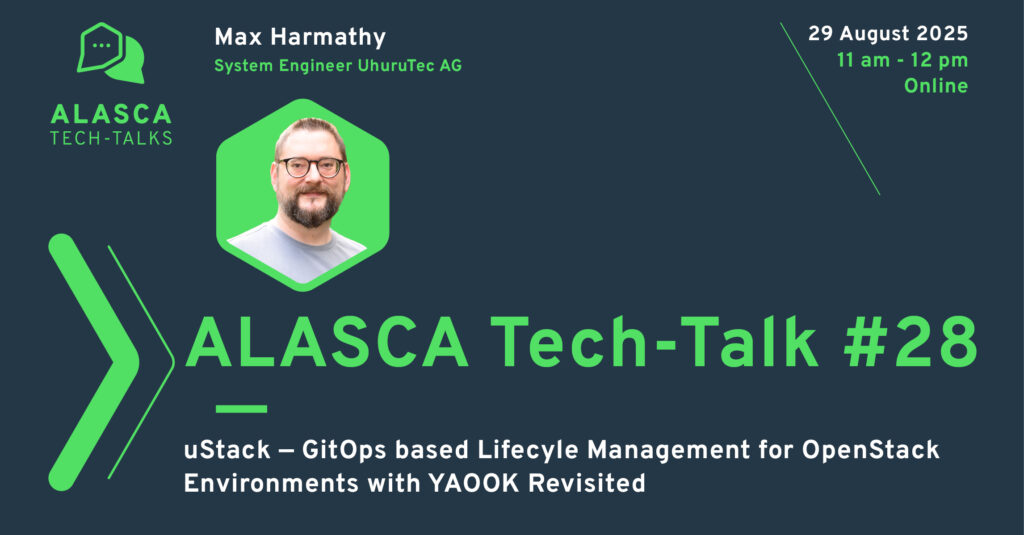
You can find all information about this and past Tech Talks here.
7) Further news
The following exciting things have also happened in the last three months:
Events
In May, the Gaia-X Roadshow made a stop in Dresden and ALASCA's Chair Marius Feldmann enriched the programme with a talk on the topic of "Data sovereignty as a sine qua non of economic success". We were also guests at DE-CIX and DD-IX community events as well as a theme night on digital sovereignty organised by the KI-Netzwerk Dresden.
ALASCA and the Open Source Business Alliance (OSBA) strengthen their partnership
ALASCA reached another milestone and was able to strengthen its partnership with the OSBA. The signing of a declaration of intent to jointly promote digitally sovereign cloud infrastructures aims to expand cooperation in a structured manner and drive forward the development of open cloud ecosystems in Europe.
Go to the declaration of intent here.
White Paper on the ALASCA Round Table
Following on from the ALASCA Round Table in March, we have also recently published our associated white paper titled "Continuity on the path to digital sovereignty - European initiatives in focus". Here you will find a compact overview of the various European initiatives on digital sovereignty. The white paper describes their history, objectives and the current status of implementation. It explains how these initiatives are interlinked and which common challenges need to be overcome on the way to a sovereign and secure digital future for Europe. The paper also summarises the key discussion points, findings and valuable perspectives of the experts involved in the ongoing initiatives as part of the ALASCA Round Table.
Go to the white paper here.
Register for ALASCA Community Digest
Do you have any questions or comments about our news? Then please contact us via hello@alasca.cloud. We look forward to hearing from you.
If you would like to receive the ALASCA Community Digest directly in your mailbox every quarter, you are welcome to subscribe to the newsletter mailing list using the contact form below.
Until next time, we wish you a good time.
